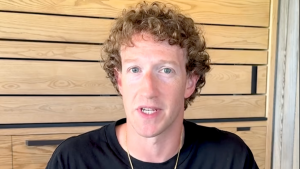According to the Pew Research Center, 21% of U.S. adults now regularly get news from social media influencers, particularly among younger demographics, indicating a shift in media trust and consumption.
Social Media Influencers Emerge as Key News Sources for Americans

Social Media Influencers Emerge as Key News Sources for Americans
A Pew Research Center report shows a significant trend of Americans relying on social media influencers for news, reflecting a growing distrust in traditional media.
A recent report by the Pew Research Center has uncovered a notable trend in news consumption: an increasing number of Americans are turning to social media influencers for their daily news updates. The report indicates that as many as one in five adults in the United States regularly rely on influencers for information, a shift that underscores a growing skepticism towards traditional media outlets.
Among younger adults, aged 18 to 29, this reliance is particularly pronounced, with 37% stating they regularly consume news via influencers. The findings, drawn from a survey of over 10,000 U.S. adults, reveal a bipartisan phenomenon, as both Republicans and Democrats show similar tendencies in following influencers across platforms like X (formerly Twitter), YouTube, and TikTok. Influencers such as Brian Tyler Cohen, Ben Shapiro, and Joe Rogan are appealing to audiences looking for authentic perspectives amid concerns over what they perceive as biased narratives in mainstream news.
During recent political events, particularly the last U.S. presidential campaign, influencers have played a critical role in shaping discussions, as many found their raw and unfiltered content more relatable compared to the often sensationalist approach of mainstream networks. Their ability to interact directly with audiences has built a sense of trust and transparency, making them a valuable resource for readers seeking credible news sources.
Mainstream media has faced ongoing criticism for how it reports news, often accused of bias, misrepresentation, and selective storytelling. This discontent has paved the way for influencers, who can provide fact-checks, varied opinions, and in-depth discussions which, according to the Pew study, are now essential in holding traditional media accountable.
However, this shift raises significant challenges. With the decline of centralized media gatekeepers, the onus of verifying information has shifted to individual consumers. While several influencers strive for accuracy, audiences must navigate the landscape of influencer content with a critical eye to differentiate between trustworthy journalism and sensationalist narratives.
The rising trust in social media influencers marks a broader disillusionment with conventional media practices. As digital platforms increasingly democratize news dissemination, influencers have stepped into pivotal roles, empowering audiences to seek diverse viewpoints and fostering critical thinking about the information they consume, ultimately challenging the supremacy of traditional news outlets.






















